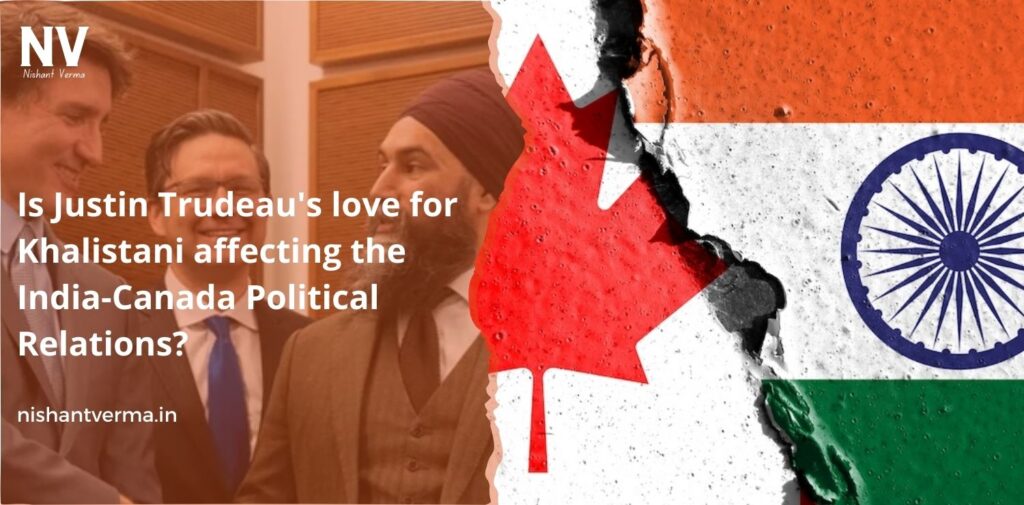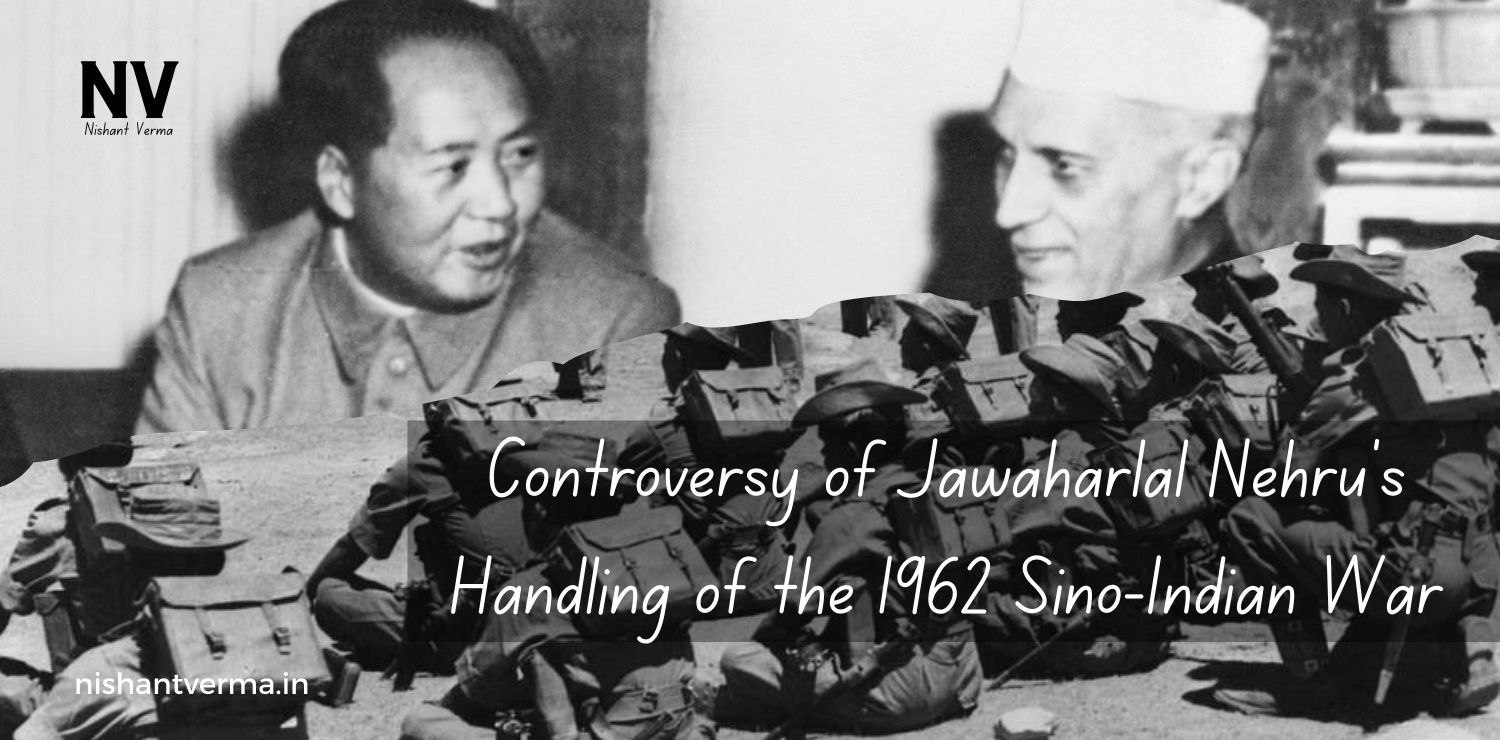The growing tensions between India-Canada Political Relations have been significantly impacted by Prime Minister Justin Trudeau’s perceived leniency toward the Khalistani movement, a separatist agenda advocating for a Sikh homeland in Punjab, India. Many in India believe that Trudeau’s government has failed to curb the influence of Khalistani sympathizers in Canada, which has strained diplomatic relations between the two nations.
The Roots of the Conflict
Historically, Canada has been home to a sizable Sikh population, and over the years, some Khalistani groups have found a platform there to push their separatist agenda. This issue came to the forefront when Indian authorities began pointing fingers at Canada for allowing Khalistani extremism to thrive unchecked. While Trudeau has often been seen as supportive of Sikh causes, many believe his stance is politically motivated, as his Liberal Party relies heavily on the Sikh vote in Canada.
This support, however, has not been without controversy. The Indian government has voiced concerns that by turning a blind eye to extremist activities, Canada is harbouring individuals who are actively trying to destabilize India. Trudeau’s refusal to take a clear stand against Khalistani extremism has only exacerbated the situation.
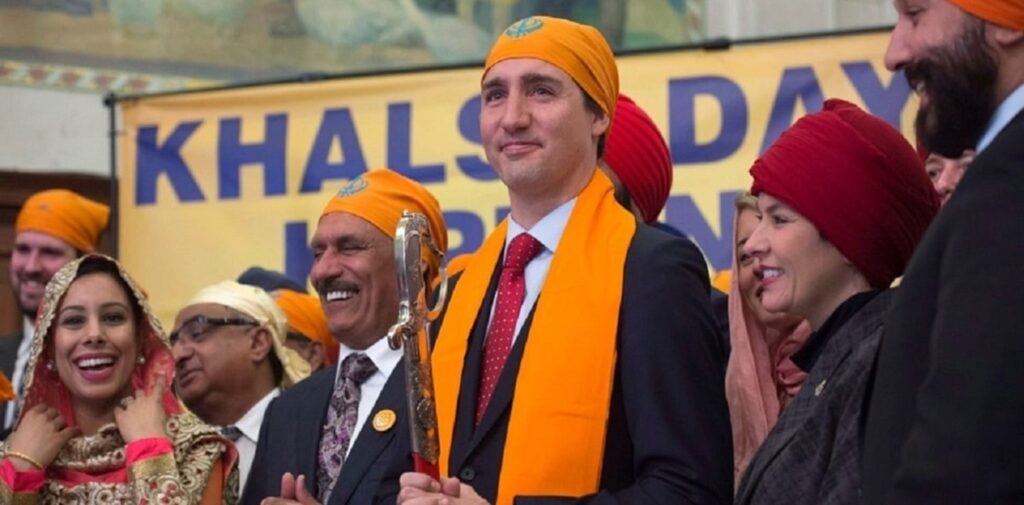
Diplomatic Breakdown
Recent allegations made by Trudeau’s government accusing India of involvement in the killing of Khalistani terrorist Hardeep Singh Nijjar have brought bilateral relations to a boiling point. The accusations were swiftly rejected by New Delhi as baseless and politically motivated. Canada’s insistence on pursuing this claim, despite a lack of concrete evidence, has worsened the already fragile ties.
Many argue that Trudeau’s handling of this issue has been careless, prioritizing domestic political gains over international diplomacy. His focus on maintaining support from the Sikh community has clouded his judgment, according to critics, who see this as an unnecessary provocation against a strategic partner like India. By not openly condemning Khalistani separatism, Trudeau is, in effect, allowing these extremist ideologies to fester.
The Fallout: Economic and Strategic Implications
The fallout from this political standoff is already visible. Diplomatic engagements between the two countries have come to a halt, with India reducing its diplomatic presence in Canada and imposing restrictions on bilateral trade and investments. Canada, too, has withdrawn a significant number of its diplomats from India, further signalling a deepening rift.
Economically, this is a setback for both nations. Canada’s trade relations with India are valued at billions of dollars, and Indian students contribute significantly to the Canadian economy, especially in the education sector. The strain in relations is likely to result in the slowing down of trade deals and educational partnerships.
Strategically, India and Canada share common interests on the global stage, particularly in terms of climate change, counter-terrorism, and regional stability. However, Trudeau’s inability to draw a clear line between Khalistani extremism and legitimate political representation within Canada’s Sikh community threatens to derail these collaborations.
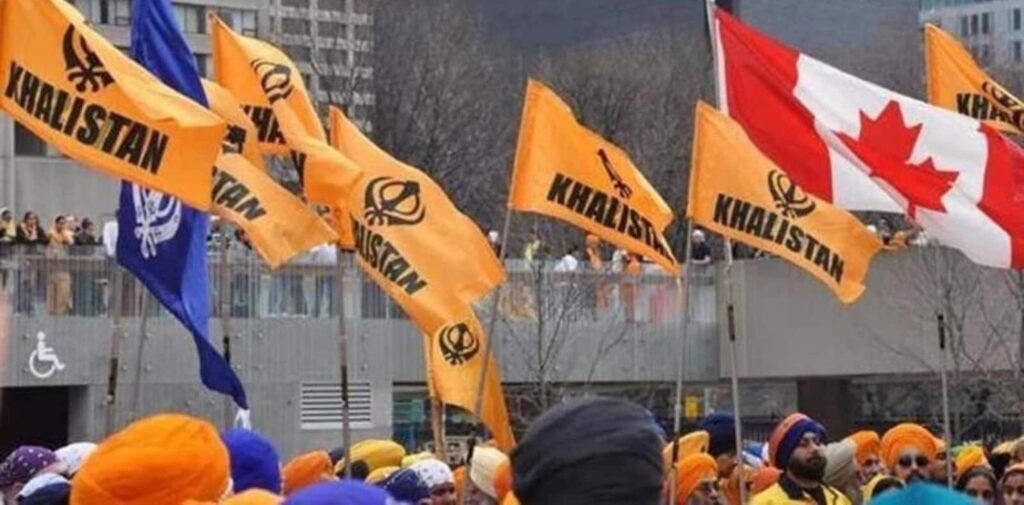
A Threat to Global Counter-Terrorism Efforts?
India has long maintained that Khalistani militants are terrorists seeking to destabilize the country. The fact that these groups found a haven in Canada has not only strained bilateral ties but also jeopardized international counter-terrorism efforts. By failing to clamp down on these separatist activities, Canada risks being seen as a weak link in the global fight against terrorism.
The Indian government has also hinted that it may seek sanctions against Canada if the latter continues to provide a platform for Khalistani extremism. Such a move would be unprecedented, but it underscores the gravity of the situation. A strong stance by India might serve as a warning to other nations harbouring individuals or groups with separatist or extremist tendencies.
Political Maneuvering or Genuine Support?
Many analysts argue that Trudeau’s stance is more about political manoeuvring than genuine support for the Khalistani cause. His reliance on the Sikh vote in key electoral regions of Canada is seen as a major factor driving his soft stance on this issue. By not taking a definitive stand against Khalistani extremists, Trudeau is walking a political tightrope, balancing domestic electoral gains against international diplomatic fallout.
However, this strategy seems to be backfiring. While Trudeau may enjoy temporary political support from pro-Khalistani factions in Canada, he is losing ground on the international stage. His government’s handling of this issue has drawn criticism from not just India, but from other global players who view terrorism and separatism as serious threats to peace and security.
The Road Ahead
The future of India-Canada relations under Trudeau remains uncertain. While both countries have mutual interests in areas like trade, education, and strategic partnerships, the Khalistan issue continues to cast a long shadow. The Indian government is unlikely to soften its stance unless Canada takes concrete steps to curb Khalistani activities within its borders.
Furthermore, the ongoing political tensions have already affected bilateral engagements. High-level meetings have been postponed, and several joint initiatives have stalled. Unless Trudeau recalibrates his approach, the diplomatic fallout could have long-lasting repercussions.
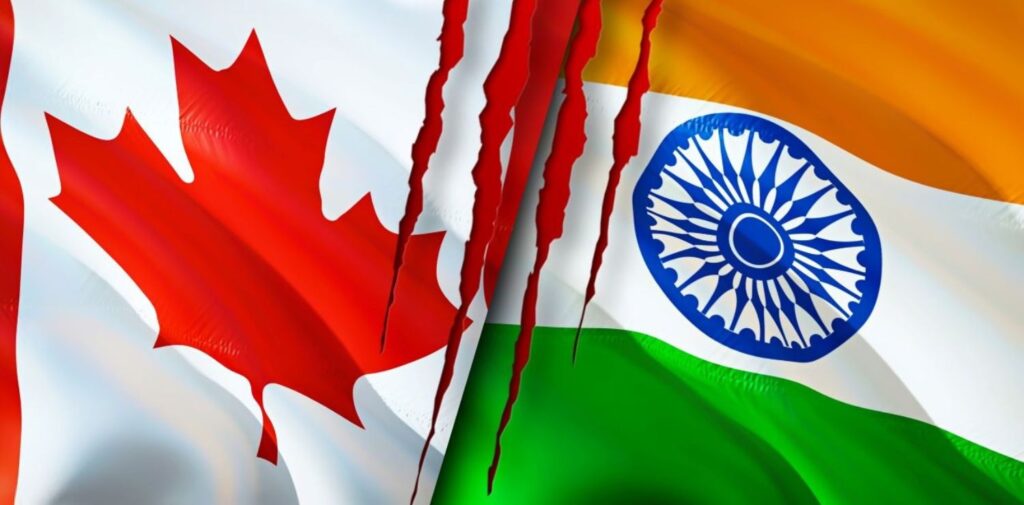
Conclusion: India-Canada Political Relations
Trudeau’s “love” for Khalistani sympathizers has undeniably affected political relations between India and Canada. What do you think? Should Canada take a firmer stance against Khalistani extremists, or is Trudeau’s balancing act a reflection of the complex political realities of a multicultural society like Canada? Let us know your thoughts in the comments.
The deterioration in India-Canada relations shows no signs of easing, and both nations must find common ground before the situation escalates further. If not handled delicately, this issue could continue to affect not only bilateral ties but also global cooperation on critical issues like counter-terrorism and trade.

